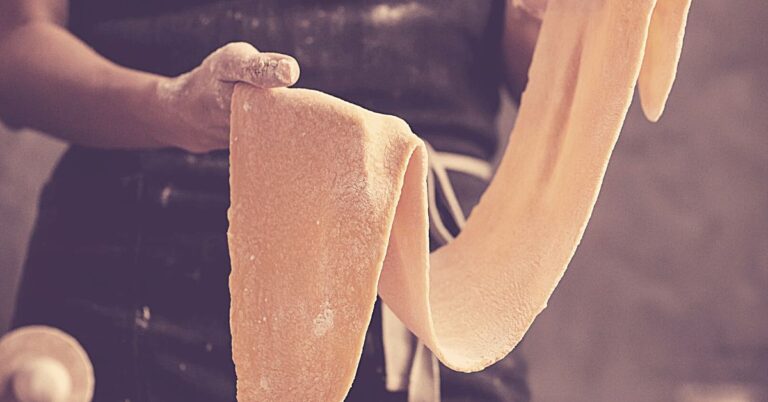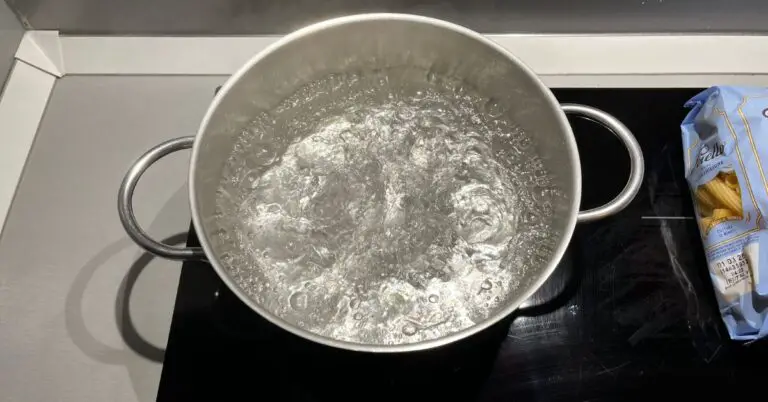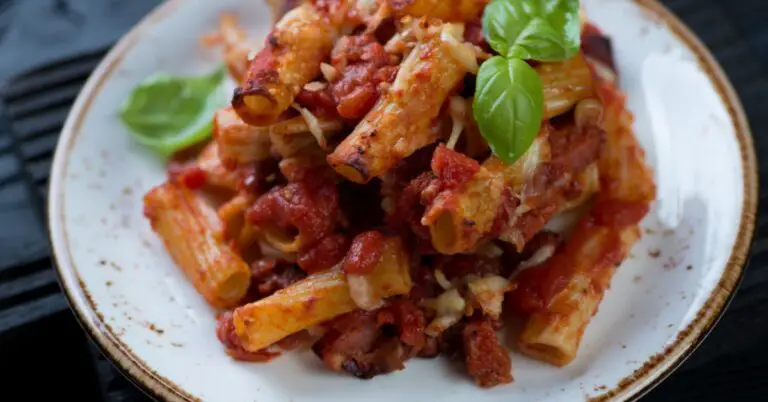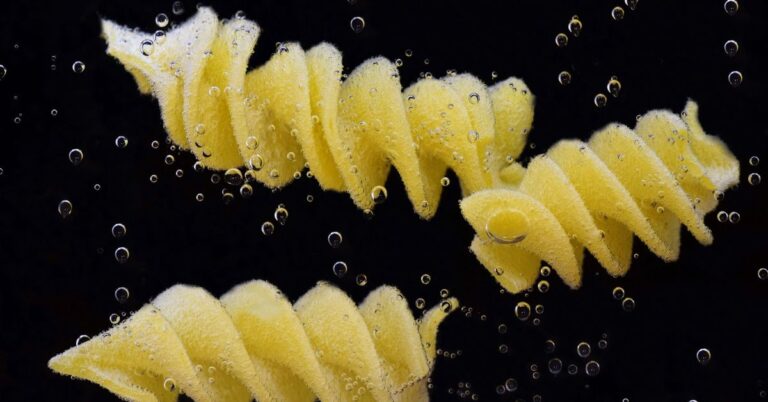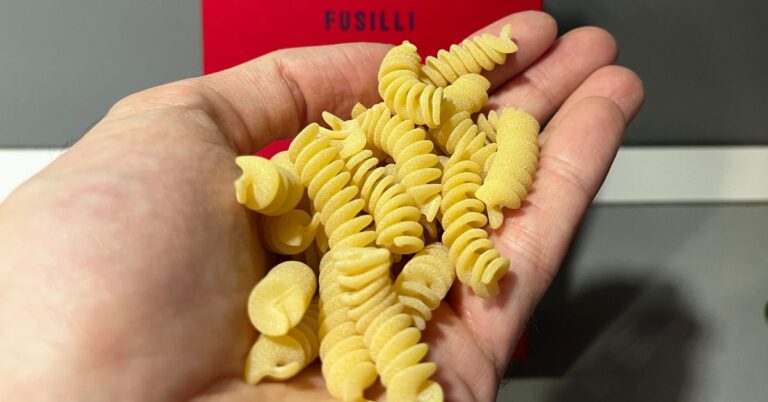We experienced it (yes, Italians too): a distraction, pasta that tends to cook too much, water that evaporates and pasta that literally sticks to each other or to the bottom of the pot, forcing us to throw everything away and cook all over again.
However, there is something to learn from these happenings: overcooked pasta will most likely stick and it will also appear unappealing, turning into something uneatable!
The most important advice to prevent pasta from sticking is to anticipate it from releasing too much starch during cooking and to try to keep the links between this organic compound and gluten intact: how? Simply with an impeccable Italian cooking technique therefore always cooking it al dente in plenty of water.
This tip is the basis but, actually, not letting pasta stick is the consequence of so many small actions that Italians often do automatically, but which guarantee us a pasta always properly cooked and never sticky. I will explain everything below.
Here is what to do to <strong>prevent pasta from sticking</strong> during cooking phase:
Total Time: 10 minutes
Choose the right pot
Use a sufficiently large pot in order to be sure that pasta will cook in a big space and completely submerged in the water (one liter of water for every 100 grams of pasta).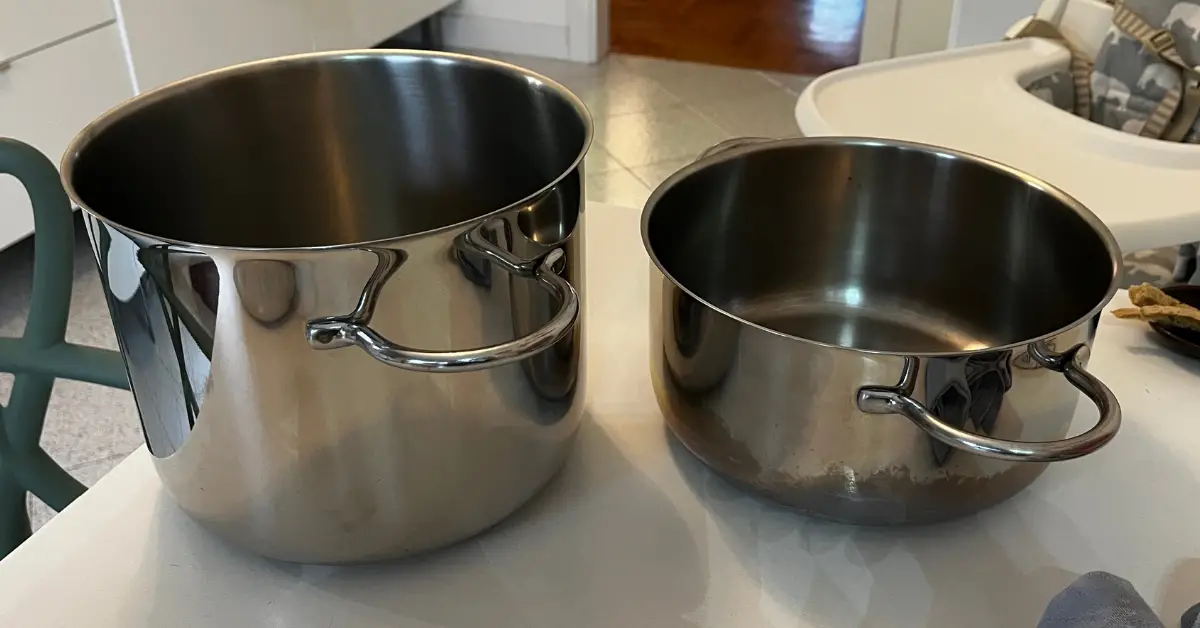
Toss pasta at the right time
Toss the pasta when the water is already salted and boiling, never before. Just wait until boiling, then add salt and pasta. 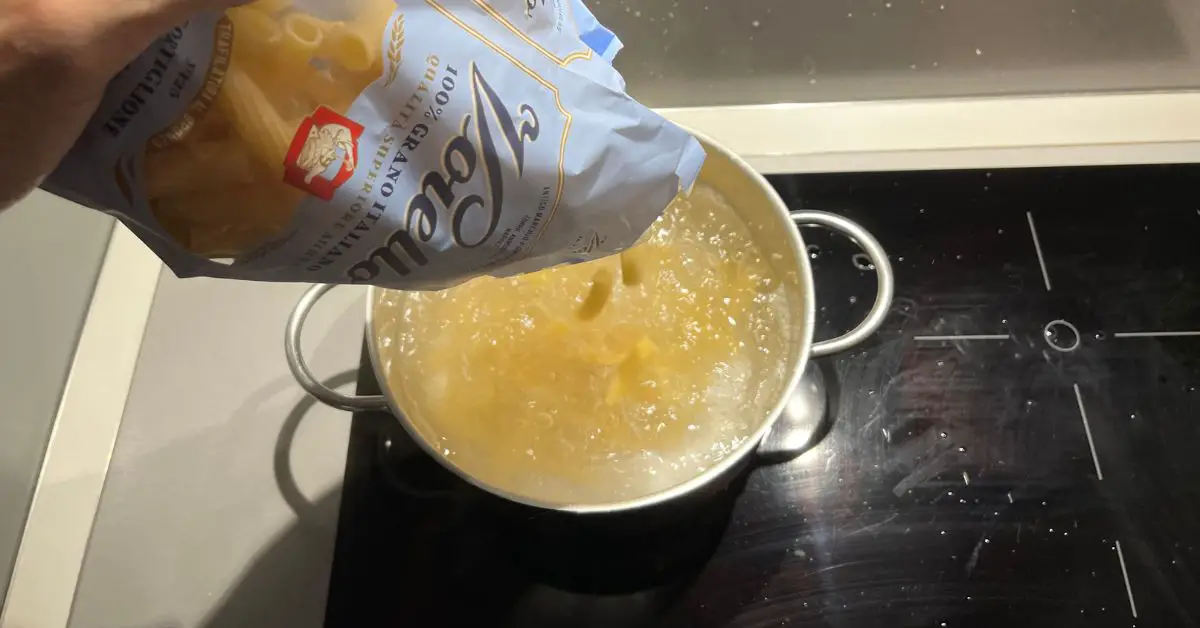
Gently stirring
Stir the pasta often during the cooking phase, tasting the macaroni to be sure to drain it when it is perfectly al dente.
Don’t delay with the sauce
A long rest in the colander allows the macaroni to stick together very easily: by remaining in contact, they keep exchanging heat and, therefore, they continue the cooking, ruining even the best al dente pasta ever made.
So, it is essential to immediately add the freshly drained pasta to the sauce or start seasoning it, never leaving it still and unseasoned in the colander or in the pot, because it will inevitably become stuck. 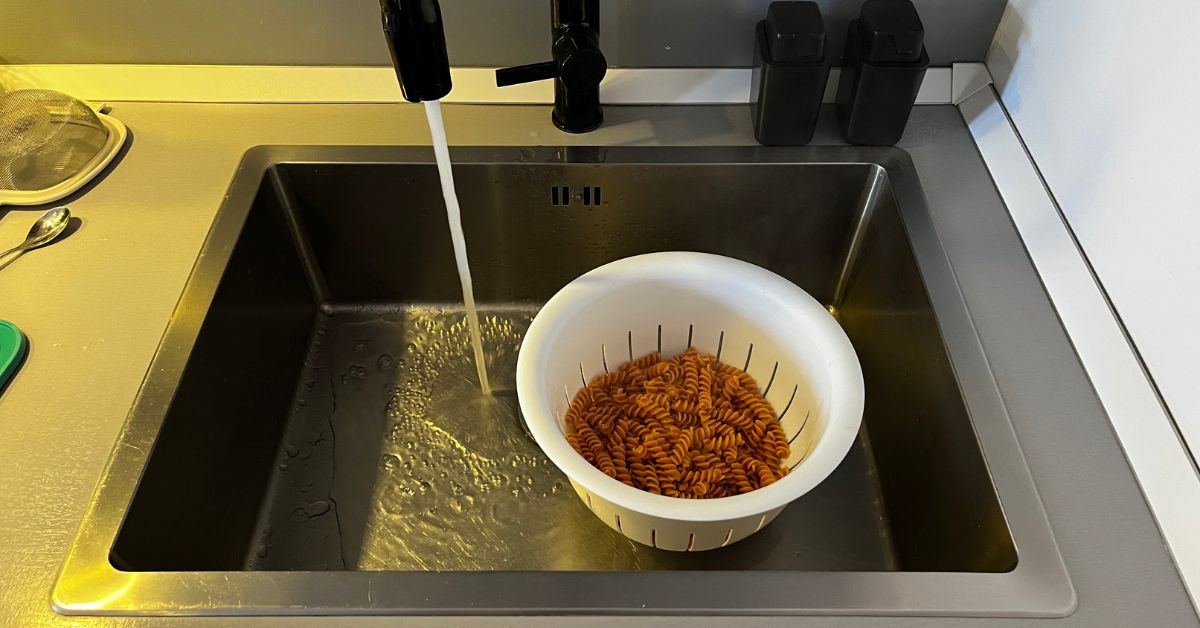
Oil to keep pasta from sticking? Ehm, no thank you!
The Internet is a mine of information and we can find all kinds of wrong or disreputable tips on cooking pasta.
Do not follow the advice that talks about adding oil to the cooking water to avoid the stuck pasta effect: because they are absolutely devoid of foundation; indeed, Italians do not do that…or, at least, I have never seen one of my compatriots do it.
Oil and water do not bind together; in fact, when we pour the first one into water, it tends to distribute itself on the surface, since it does not bind. So, it will settle on the pasta’s surface! The only result will be a greasy and slippery dish and, consequently, not very porous pasta that would no longer be able to mix itself with the sauce. What a shame!
Italian-style pasta: moist and slippery or dry and thicker?
The Italian pasta symbol in the world is probably spaghetti with tomato sauce decorated with a basil leaf (you are also thinking of the emoji on socials, right?), but there are so many popular recipes in my own country that have crossed national borders to reach the tables of very distant places.
However, as a matter of fact, even among Italians, there are variations of taste based on our preferences.
To say it in Neapolitan, there are those who prefer pasta sciuliarella (slippery, well-hydrated and juicy, usually obtained by creaming it with cooking water) and, on the other hand, those who adore the pasta azzeccata (less hydrated, more robust and combined with the sauce).
After that, whether the pasta is prepared sciuliarella or azzeccata, it should always be cooked in boiling salted water, by preventing the macaroni from sticking to the bottom of the pot or to each other and strictly draining al dente.
This is because even the driest variant of pasta recipe must be the result of careful boiling and not of too long and careless cooking.

